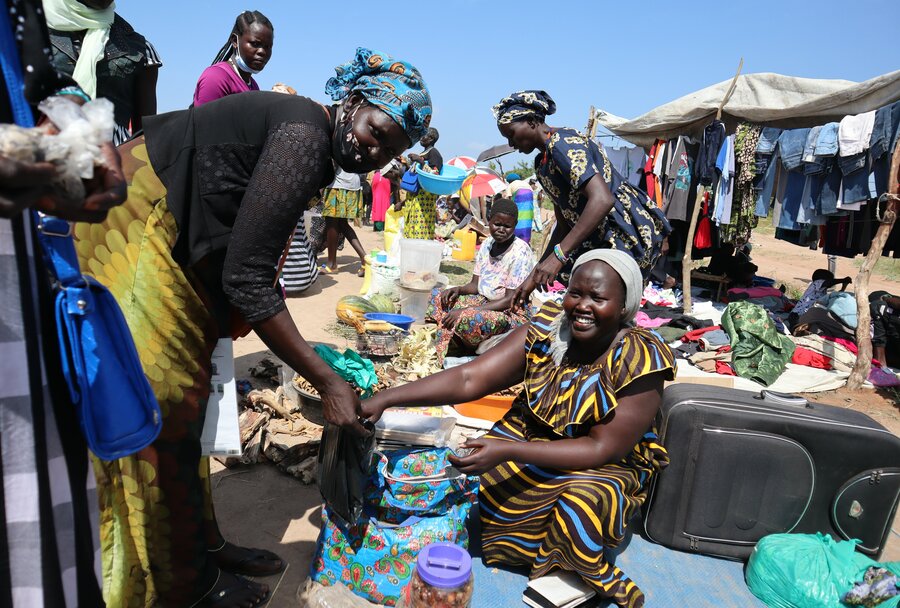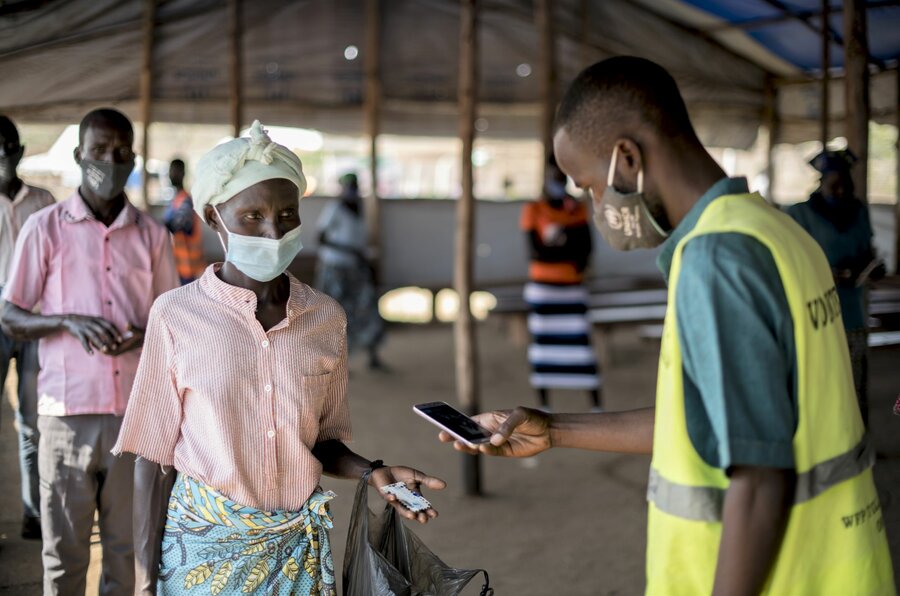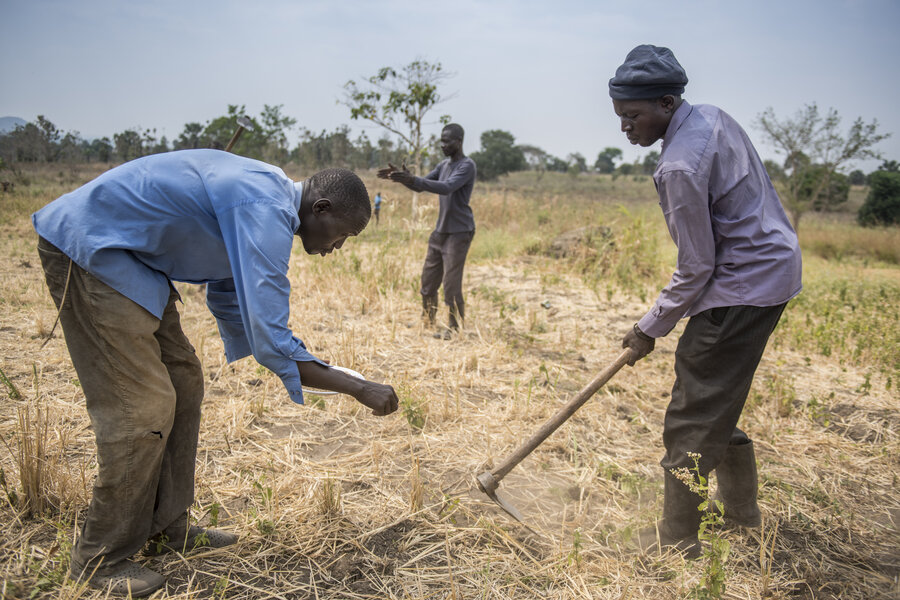Cash grants from WFP empower refugees in Uganda

“I grew up believing that if you are an uneducated woman your husband will provide everything,” says Martha. “I didn’t leave the house much and my husband provided all we needed.”
All that changed in 2014 when Martha and her five children were forced to flee conflict in South Sudan and join thousands of others as refugees in Uganda. Her husband remained behind to protect the family business – leaving her in charge.
Originally from Sudan, the family had moved across the border into South Sudan a year earlier so that her husband could set up a restaurant.
“I used to cry all the time when we first arrived because I did not know how I would survive alone,” she says. “How was I going to look after my children?”
Martha, 34, began her new life as a refugee by clearing bushes and building a house for herself and her children in Rhino Camp Refugee Settlement in northwest Uganda where she received in-kind food assistance from the World Food Programme (WFP).
In 2014, WFP changed its nutrition assistance modality for refugees to cash transfers. Financial literacy training was provided by WFP to help refugees manage the change in assistance.

WFP uses cash transfers to empower people with choice to address their essential needs in local markets, while also helping to boost these markets.
“At first, I did not like the change from food [assistance] to cash because prices often change and that affects what I can buy,” says Martha. “But then I realized that the with money, I could at least decide what my family eats. The money made me feel empowered even when things were hard.”
Uganda hosts 1.5 million refugees – more than any other country in Africa. WFP supports 1.3 million people with food rations and cash transfers.
WFP also supports refugees by training them in best farming practices such as the reduction of post-harvest losses which includes the use of effective drying and storage solutions for harvested crops.
However long-term funding gaps means that WFP can only provide Martha with 70 percent of her basic food ration. Others – who are deemed less vulnerable – must survive on only 40 percent of a full ration.

This means that refugees do not have enough food to eat and are forced to look for alternative ways to supplement the assistance that WFP provides.
“I add the money that I receive from WFP to what I make from selling fish and vegetables which all helps to support my family,” says Martha.
She also used her knowledge of local flora to gather sap from tree stems and sell it as perfume or as air fresheners.
Martha has also enrolled herself into a local primary school where she is one of five adults learning alongside the children.
Now in her last year of primary school and preparing for her final exams, she often calls her relatives in Sudan to share news of her progress.
“They cannot believe that I am actually studying,” she says. “They just laugh because they cannot imagine a woman can be so determined.”
Her enthusiasm to learn shows no sign of slowing and she is already saving up to attend secondary school and hopes to eventually obtain a diploma.
“If I had not come to Uganda, I would never have known that there is a different life out there and my daughters would have grown up thinking they have to depend on their husbands.”
“When I finally return home, my friends and family will be surprised by the new independent and educated Martha who built her own house and provided for her family.”
Thanks to the generosity of donors such as the European Union, WFP supported 1.3 million refugees with cash and food assistance in 2021. WFP currently needs US$116 million to provide full rations to all registered refugees living in settlements in Uganda until August 2022. At present, even with ration adjustments, WFP has a shortfall of US$32 million for the same period.
